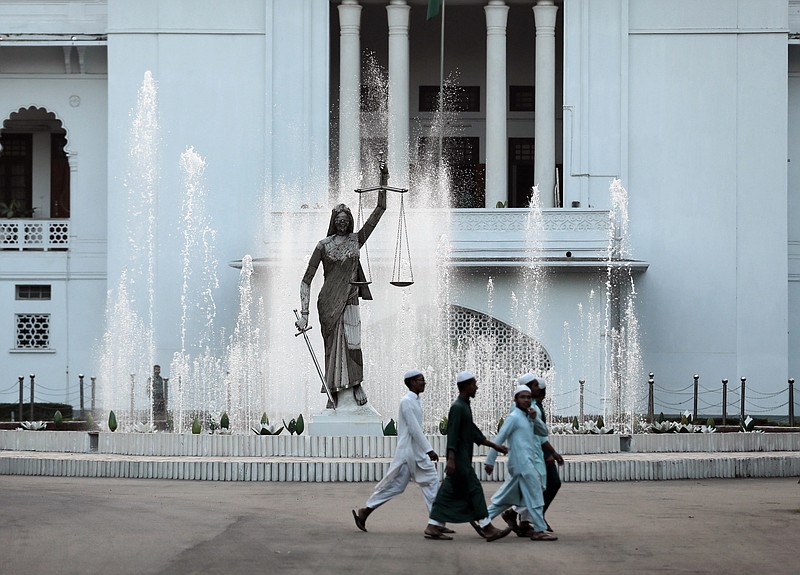DHAKA, Bangladesh (AP) - Authorities in Bangladesh reinstalled a Lady Justice statue near the country's Supreme Court, two days after its removal following complaints by Islamist hard-liners.
Sculptor Mrinal Haque said Sunday workers put the statue back in place a few hundred meters (yards) from its original location.
Haque, who took care of the reinstallation work overnight, said he was shocked at the statue's removal Thursday night. He said it would be less visible in its new place.
Security was tight and officials did not allow anybody inside the court area when the statue was re-erected. A dozen people nearby chanted anti-government slogans and demanded the work be stopped.
The removal was to appease hard-liners who said the statue was erected last year in front of a ground used for prayers during two Islamic festivals. But it also sparked criticism and protests among liberals, cultural groups and left-wing activists.
Many have accused Prime Minister Sheikh Hasina of siding with the Islamists who are traditionally close to her rival Khaleda Zia, the opposition leader and a former prime minister. Hefazat-e-Islam, a platform of the Islamists, had welcomed the removal and vowed to wage new protests to press for removal of other sculptures on university campuses and intersections across the country.
The statue of a woman holding a scale and sword in her hands was installed in December. The statue is wrapped in a sari, a Bangladeshi revision of the usual representation, the Greek goddess Themis blindfolded and clad in a gown. Islamists oppose idol worship and consider the Lady Justice statue anti-Islamic.
The reinstallation of the statue can be seen as a blow to the hard-liners who are trying to get some political mileage ahead of next general elections expected to be held in December next year.
Hefazat-e-Islam supporters have protested in front of the main mosque in Dhaka several times after the statue was erected. The group, which has a network of students from thousands of Islamic schools across the country, had threatened to launch a mass movement if the government failed to remove the statue.
In 2008, protests led to the removal of a statue of a Bangladeshi mystic poet at a road crossing near Dhaka's airport.
The country of 160 million people is ruled by secular laws, but radical Islam has been rising.
In recent years dozens of atheists, liberal writers, bloggers and publishers and members of minority communities and foreigners have been targeted and killed.
